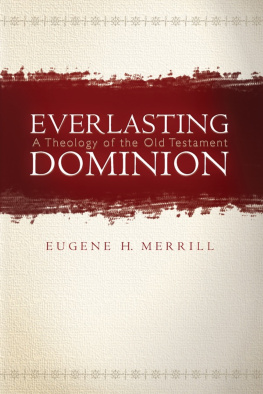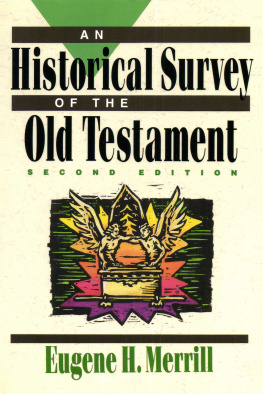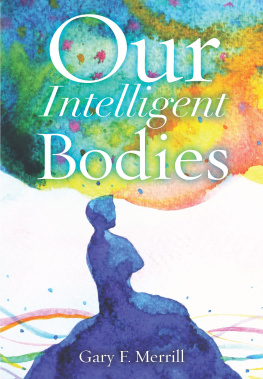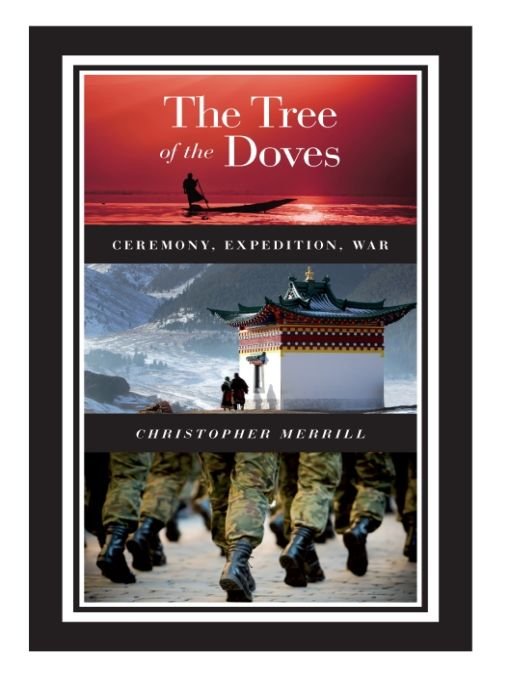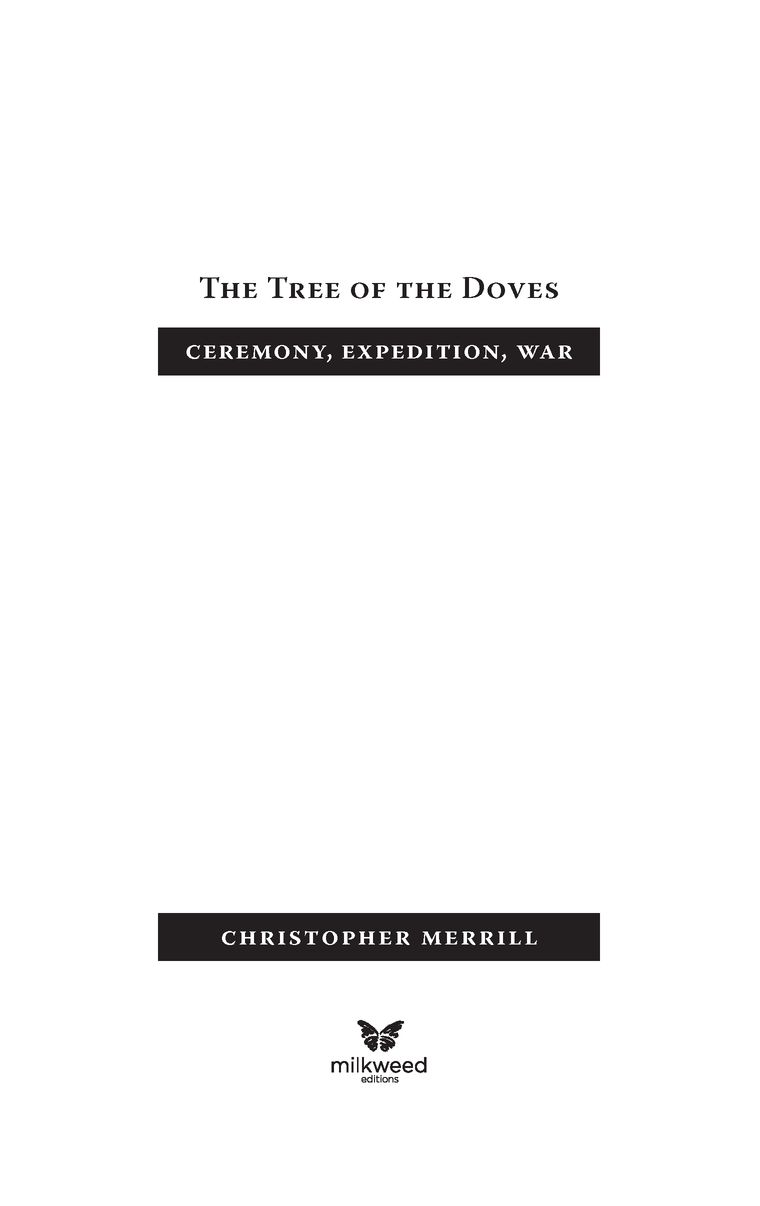Table of Contents
Also by Christopher Merrill
Workbook (poems)
Outcroppings: John McPhee in the West (editor)
Fevers & Tides (poems)
The Forgotten Language: Contemporary Poets and Nature (editor)
From the Faraway Nearby: Georgia OKeeffe as Icon (editor, with Ellen Bradbury)
The Grass of Another Country: A Journey Through the World of Soccer (nonfiction)
Anxious Moments, prose poems by Ale Debeljak (translator, with the author) Watch Fire (poems)
What Will Suffice: Contemporary American Poets on the Art of Poetry (editor, with Christopher Buckley)
The Old Bridge: The Third Balkan War and the Age of the Refugee (nonfiction) The Forest of Speaking Trees: An Essay on Poetry
Your Final Pleasure: An Essay on Reading
The Four Questions of Melancholy: New and Selected Poems of Toma alamun (editor)
The Way to the Salt Marsh: A John Hay Reader (editor)
The City and the Child, poems by Ale Debeljak (translator, with the author) Only the Nails Remain: Scenes from the Balkan Wars (nonfiction)
Brilliant Water (poems)
Things of the Hidden God: Journey to the Holy Mountain (nonfiction)
Even Birds Leave the World: Selected Poems of Ji-woo Hwang (translator, with Won-Chung Kim)
Because of the Rain: A Selection of Korean Zen Poems (translator, with Won-Chung Kim)
Scale and Stairs: Selected Poems of Heeduk Ra (translator, with Won-Chung Kim)
7 Poets, 4 Days, 1 Poem (collaborative poem, with Marvin Bell, Istvn Lszl Geher, Ksenia Golubovich, Simone Inguanez, Toma alamun, and Dean Young)
Translucency: Selected Poems of Chankyung Sung (translator, with Won-Chung Kim)
for Sloan Harris
Terror is opportune as is relief from terror.
Geoffrey Hill
PROLOGUE
I take my bearings on the Golan Heights, between an Israeli observation post and a UN peacekeeping base. Israel captured this strategic plateau in the Six Days War in 1967, and through the haze of an autumn afternoon, beyond a line of bunkers and a vineyard, I can see the road to Damascus, forty kilometers away. Beirut is a little farther off, over Mount Hermonone of the sites traditionally ascribed to the Transfiguration, where Jesus appeared to his disciples in a new light. When Peter, James, and John saw their rabbi in a radiant white robe alongside the prophets Moses and Elijah, they recognized him as the Messiah. Out of a cloud came the voice of God: This is My beloved Son, in whom I am well pleased. Hear Him! Jesus told his disciples to keep his metamorphosis secret until after he rose from the grave, then continued his ministry in the communities around the Sea of Galilee, at the base of the Golan Heights. It was there that he revealed his plan to build a church destined to reshape the course of history, first in the Roman Empire and then around the worlda religious movement that became inseparable from politics. It started with Jesus demanding a change of heart from his followers, and twenty centuries later I began to reflect on some of the changes wrought by another revolution in political thinking: the war on terror declared by President George W. Bush in the aftermath of the 9/11 attacks on New York City and Washington, DC.
Terror is always with usa fact borne out by countless examples from daily life: the heart racing on a turbulent flight, the dread felt before the diagnosis is delivered. But a lookout on the Golan is a particularly good place to consider the consequences of living in fear. This is disputed land, in the sights of military planners and observers, politicians and diplomats, clerics and poets; and even on a quiet day it is hard to escape the sensation that all hell could break loose at any moment. Syrian claims on this land, which provides Israel with a crucial supply of fresh water, have for forty years added new threads to a tangled history, which periodically unravels in a spectacular fashion; hence the peacekeepers, more than a thousand strong, who patrol a zone of separation between the two countries, maintaining the cease-fire negotiated after Syrias failed invasion of the southern Golan in the Yom Kippur War of 1973. A Security Council resolution regards the Golan as Israelioccupied territory; any settlement of the Arab-Israeli conflict, which dates back more than a century, must thus resolve the matter of the Golan, which for the Jewish state forms a critical bulwark against Arab attacks.
The story of living in the presence of fear belongs to the ages. Terrors leading role in the history of the region that gave rise to Judaism, Christianity, and Islam reminds us that much religious discourse is predicated on questions rooted in fearparticularly of the unknown: Where do we come from? Where are we going? What shall we do? Such was the drift of my thinking on the drive up the escarpment, along a narrow, twisting road past fenced-off minefields, olive groves, and Druze villages carved into hillsides. At the sight of a police station surrounded by barbed wire my Arab guide told me that most Druze are waiting for Syria to regain the Golan, either through negotiations or force, although they keep silent about this in public for fear of antagonizing the authorities. Nor, he added, would I learn anything from the only man in the street, a religious elder dressed in a black robe and white turban. He would not breathe a word about his faith or politics to an outsider, my guide explained; members of this small Islamic sect have long since learned to keep their own counsel. On we drove toward the Syrian border.
Now at the lookout the guide points beyond the peacekeeping base to the remains of a Druze village destroyed by retreating Syrian forces, and shakes his head.
Too much war, he mutters, leading me to the kiosk, where he insists that I try a Druze pitaa wrap filled with labneh, a soft, sour cheese, almost a yogurt, sprinkled with zaatar, which is a blend of spices including oregano, dried sumac, sesame seeds, and salt.
From here we descend to the Sea of Galilee, past fields of obsidian and scrub, military bases, and an extensive system of rain catchments and reservoirs that drained the wetlands and turned this desert into an agricultural oasis. The three sources of the Jordan River are located on the Golan, whose vineyards ensure that water is regularly turned into wine, and across the river in which Jesus was baptized we stop in Capernaum, so that I can walk in the land of his ministry. There is no time to visit the synagogue in which he preached, or climb the hill above a banana grove to see the church raised on the site on which he delivered the Sermon on the Mount, or board the wooden boat that carries pilgrims across the lake, on which he sailed with his disciples. But I do wander through the Church of the Multiplication of the Loaves and Fishes, the altar of which is built around the stone on which he is said to have laid five loaves of bread and two fishes to feed five thousand, fulfilling Isaiahs prophesy to leave his birthplace in Nazareth and dwell in Capernaumwhere the people who sat in darkness saw a great light, and upon those who sat in the region and shadow of death light has dawned. Three Indian women in bright blue saris fall to their knees to touch the stone, and then I do the same.


